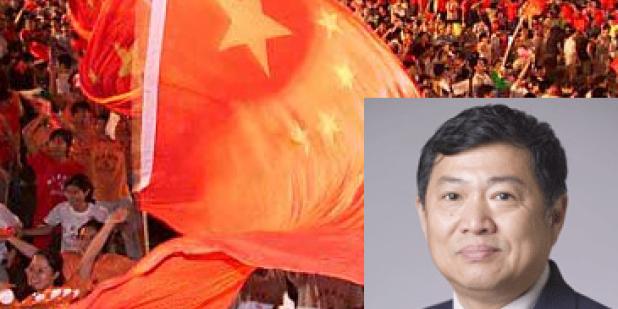Join us for a free one-day workshop for educators at the Japanese American National Museum, hosted by the USC U.S.-China Institute and the National Consortium for Teaching about Asia. This workshop will include a guided tour of the beloved exhibition Common Ground: The Heart of Community, slated to close permanently in January 2025. Following the tour, learn strategies for engaging students in the primary source artifacts, images, and documents found in JANM’s vast collection and discover classroom-ready resources to support teaching and learning about the Japanese American experience.
Chinese Nationalism and its Foreign Policy Implications

Thursday, February 1, 2007, 4-5:30 pm
USC University Club, Pub Room
Sponsored by the USC U.S. - China Institute
Click here to read Jing Li's report on the talk.
Suisheng Zhao is Professor and Executive Director of the Center for China-US Cooperation at Graduate School of International Studies, University of Denver. He is founding editor of the Journal of Contemporary China, a member of the Board of Governors of the US Committee of the Council for Security Cooperation in the Asia Pacific, a member of National Committee on US-China Relations, and a Research Associate at the Fairbank Center for East Asian Research in Harvard University.
Prof. Zhao is the author or editor of nine books or monographs. His most recent books are Debating Political Reform in China: Rule of Law versus Democratization (M. E. Sharpe, 2006), A Nation-State by Construction: Dynamics of Modern Chinese Nationalism (Stanford University Press, 2004), Chinese Foreign Policy: Pragmatism and Strategic Behavior (M. E. Sharpe, 2003), China and Democracy: Reconsidering the Prospects for a Democratic China (Routledge, 2000), Across the Taiwan Strait: Mainland China, Taiwan, and the Crisis of 1995-96 (Routledge, 1999). In addition, his forthcoming book, The Rise of China and Transformation of US-China Relations, will be published by Routledge in 2007. His articles have appeared in Political Science Quarterly, The Wilson Quarterly, Washington Quarterly, International Politik, The China Quarterly, World Affairs, Asian Survey, Asian Affairs, Journal of Democracy, and elsewhere.
Featured Articles
Please join us for the Grad Mixer! Hosted by USC Annenberg Office of International Affairs, Enjoy food, drink and conversation with fellow students across USC Annenberg. Graduate students from any field are welcome to join, so it is a great opportunity to meet fellow students with IR/foreign policy-related research topics and interests.
RSVP link: https://forms.gle/1zer188RE9dCS6Ho6
Events
Hosted by USC Annenberg Office of International Affairs, enjoy food, drink and conversation with fellow international students.
Join us for an in-person conversation on Thursday, November 7th at 4pm with author David M. Lampton as he discusses his new book, Living U.S.-China Relations: From Cold War to Cold War. The book examines the history of U.S.-China relations across eight U.S. presidential administrations.




